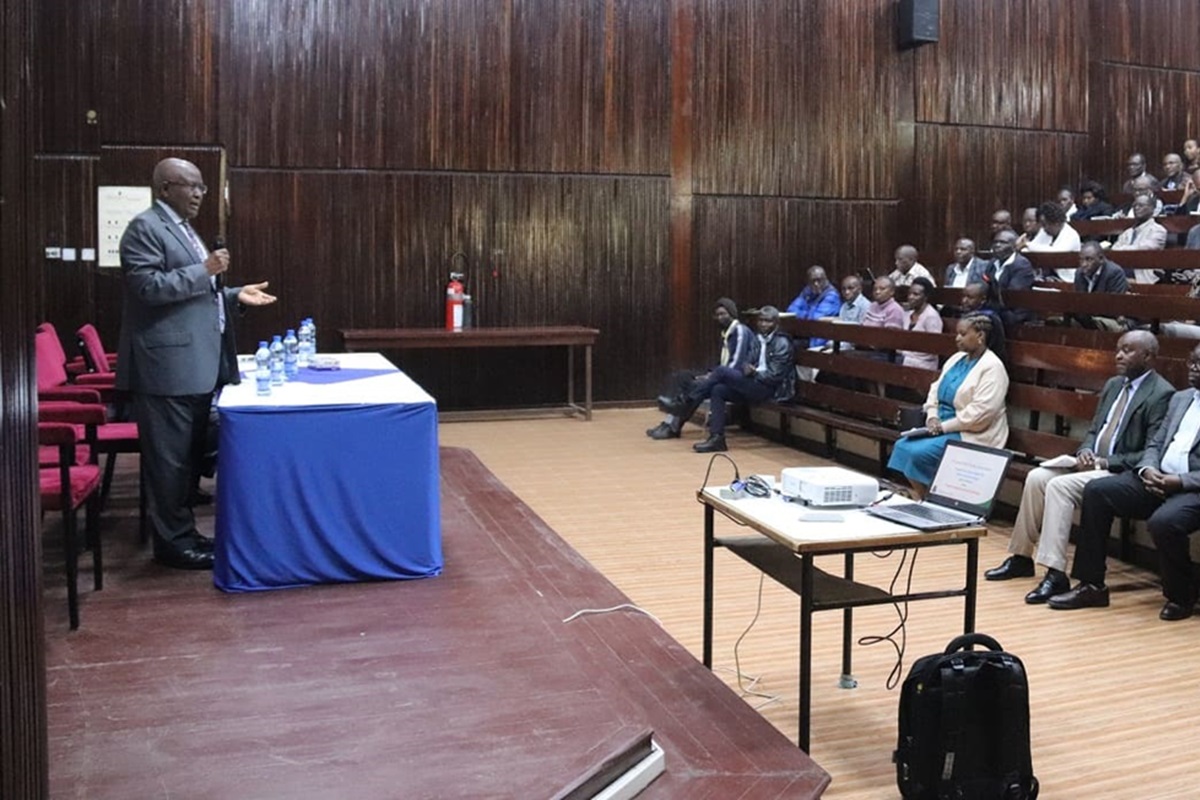Position Three: The Destiny of the ‘Third World’ Is in Our Hands
The Destiny of the ‘Third World’ Is in Our Hands
By Erastus Wambiakale Otieno
The issue of emigration from ‘Third World’ countries in search of livelihood opportunities in countries that are deemed to be better economically endowed has generated quite some debates. On the one hand, human beings will always move in search of livelihood opportunities so such migration may be deemed as normal. On the other hand, such migration can pose a serious threat to Third World development because of the opportunity cost in terms of the potential loss of human capital that such countries do not always have plenty of. However, some of the migrations have been more about the desire to experience what other parts of the world have to offer based on the imagination that the local is probably inferior. The expression “the sun always shines more brightly in the neighbour’s yard” comes to mind. Unfortunately, this is an attitude that many people in the developing world have embraced. A substantial number of Third World citizens often think that their grim material conditions can be cured through emigration to other parts of the world that they consider to be boundlessly endowed.
Occasionally, I have wondered what would happen if all the emigrants fleeing one problem or the other back at home for a good life in other countries were bold enough to choose to stay and fight to change the circumstances that push them out. That would immensely benefit the Third World source countries because their skills, both hard and soft, their talents, and their wealth would remain in the home countries where they are sorely needed. They would be a very valuable resource, which would greatly enhance the economies of the source countries. Emigrants do not necessarily like the lives they live away in foreign lands. If they had the option they obviously would want to stay at home, yet the reality demands that they emigrate so that they can take care of the needs of their loved ones and the extended families back at home. But the question that emerges is: do these emigrants ever give a thought to the irony in the fact that their emigration plans often result in them contributing to some of the issues they are trying to escape from like poor management, which they cannot address when they are away? After all, the majority of the nations to which they relocate have faced similar problems in the past but the citizens chose to confront the issues head on instead of fleeing to other countries which could have offered them opportunity for a better life and escape from the chaos of home.
For instance, in response to social and economic inequality, food shortages, poor governance, and unfair taxation policies that were prevalent in their country in the late 18th century, the French people did not flee from their issues, instead, they confronted them head on in what culminated into what we now know as the French Revolution. The revolution had far reaching consequences that are still evident to date in the French political, social and economic sphere. Similar corrective upheavals have been experienced in other parts of the world, some more comparative to the success of the French Revolution than others. Similar issues exist in many Third World nations and they call for a similar bold response with a view to correcting the anomalies. Perhaps the French Revolution offers a lesson for the total overhaul of the Third World economies that need to be emulated in order to stem the migrations that are increasing alarmingly.
There are those who highlight what they see as the advantages of emigration because those who go out to look for work send back money in the form of remittances. They argue that such money sent by emigrants can help to improve the economies of their families as well as the source country generally. Whereas it is true that some countries have come to rely significantly on remittances from such emigrants for foreign currency that advantage does not compare with the benefits that the host country derives from the migrant workers. To start with, emigration often brings benefits to the host country in terms of workers with rare skills and technological advancement which often prop up the economies of the host countries. Often, such skills are also passed on to the workforce of the host countries through apprenticeship. Therefore, the benefit in terms of skills that the host countries derive from migrant workers cannot compare to the benefits of the source countries in terms of remittances. If anything, the source countries are the net losers because they often lose highly skilled manpower, which amounts to loss of productivity, which undermines the economic future of the country.
Africa has a lot of potential when it comes to skilled and unskilled labourers. Unfortunately, we do not fully capitalize on that potential. Several reasons have led to this, but the main reason is that manpower has been flowing from these countries to developed countries for years. Doctors, engineers, teachers, lawyers, and other professionals go abroad to find jobs. How then will the Third World economies such as Africa’s grow if professionals leave to take up jobs abroad? We can only achieve transformation if these people stop emigrating and try to create back home opportunities similar to those that lure them abroad. A simple strategy, therefore, would be to discourage emigration from the Third World by offering the professionals incentives to stay. Perhaps all citizens should see it as their duty to pressurize the respective governments to take appropriate steps to meet the need for the citizenry to live a decent life instead of leaving the problems unresolved so that emigration becomes the easier option.
About three years ago, when African Americans protested the murder of George Floyd and to stop police killings of black people, African migrants stood with them. I was captivated by the wailing and lamentation by a woman in a very familiar Kenyan Luo Nyanza accent. Her fervour during the protests was unmistakable, it was deeply felt, especially in the way she disrupted traffic while pushing for justice for George Floyd. Unfortunately, she was using all that energy to push for justice in her host country and make it better at the expense of her home country, which needed such protests even more to demand for justice, social change and development. I could not stop reflecting on the magnitude of the social change that the kind of energies she invested in the George Floyd protests in USA could bring about if she invested them in Kenya.
It is apparent that emigration has a direct negative impact on the countries left behind, but in the long run it will adversely affect the receiving countries in terms of the potential of social instability because of discomfort with the migrant workers due to the consciousness of their outsiderness. Therefore, even as the source countries ought to do everything to minimize departures, the receiving nations have everything to gain by minimizing immigration of Third World citizens to their countries as a way of maintaining social order. Such a step would benefit the receiving countries’ economies by preventing overpopulation, which would put a strain on social services leading to unrest such as happens often in South Africa. One way of doing this is to make demands on the source countries to strengthen their economies and social services in order to encourage the citizens to stay at home.
It is in same vein I think USA should re-examine its Diversity Immigration Visa Programme which has the potential of escalating emigration especially given the attraction that USA is for potential Third World emigrants for whom USA represents the solution to their problems. As it is, the visa programme has already caused substantial brain drain from the Third World through loss of talented skilled workforce and academic personnel trained for several years in the source countries. The programme lures and makes them lose motivation and desire to work in their home countries. Additionally, through the United Nations Charter, developed countries should assist Third World countries to find a long-term solution to the push factors of emigration. It is not lost to me that eliminating emigration completely is a tall order but minimizing it to the lowest rate can make a big difference for such Third World countries with high emigration rates Such as South Sudan. Certainly, addressing both the push and pull factors like the Diversity Immigration Programme will stabilize Third World countries and help them to develop by refocusing their minds and energies.







